There's a ragbag of items for today's post.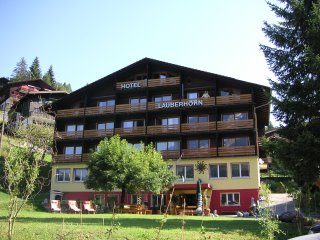 Let's start with a few holiday snaps - with a difference. Antibes can get quite stifling in the summer months, so in July we used the internet to book an easyJet flight from Nice to Geneva, where we picked up a hire car. We spent the first night in Annecy - back across the border into France, needless to say. And what a splendid town it is, and such a clean attractive lake.
Let's start with a few holiday snaps - with a difference. Antibes can get quite stifling in the summer months, so in July we used the internet to book an easyJet flight from Nice to Geneva, where we picked up a hire car. We spent the first night in Annecy - back across the border into France, needless to say. And what a splendid town it is, and such a clean attractive lake.
The next day we motored round the north shore of Lake Geneva to Grindelwald, nestling as they say, at the foot of the mighty Eiger mountain. But we had heard stories in advance that something quite extraordinary was happening there, and I have the pictures to prove it. The picture above (click to enlarge) is the hotel we stayed in for three nights. You can just about make out my wife on the balcony, next to the N of Lauberhorn. Shortly after we arrived I took the
second picture.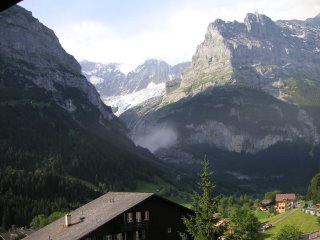
It was a superb view, as you can see, even though the main mass of the Eiger is out of the picture, a bit to the right. But can you see that activity down in the cleft ? No, it's not smoke, but dust. Chalk dust ( well, limestone actually, but let's not get hung up on the geology). And what I can't bring you (unless Blogger accepts the movie footage off my dinky digital camera) is the constant ominous grinding and rumbling which came from that direction.
Well, the boring old scientist in me decided that this was how I was going to spend my holiday. Sod the obligatory excursions on cable cars, whatever, ie the the official Grindelwald tourist trail. I was going to remain ensconced on that balcony, waiting for the big collapse that the media was now forecasting. Through the glasses (I'd brought my superb Swift binoculars) I'd could see plenty of activity - rock slides, more dust.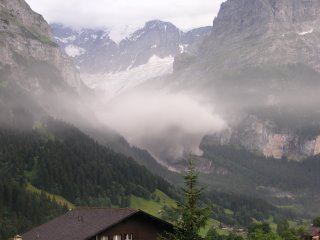 Finally, my patience was rewarded. No, I wasn't quick enough to catch the initial rockfall, but here was the immediate aftermath, a mighty, menacing eruption of dust that crept slowly down the valley towards the village.
Finally, my patience was rewarded. No, I wasn't quick enough to catch the initial rockfall, but here was the immediate aftermath, a mighty, menacing eruption of dust that crept slowly down the valley towards the village.
There are much better pictures of the collapse than mine. We saw some of them in newspapers and on TV in the coming days. But it was an experience to see something as it happened, and get a sense of the huge forces that are at work in the fragile crust of this planet of ours.
So what caused the collapse ? Melting of the glacier in the cleft, apparently, yet another sign of global warming we are told. But the glacier had been supporting the end of the mountain, which was cracking up anyway, due to frost action in the many cracks and fissures.
The Eiger, especially its north face , ie the Grindelwald side, has long attracted mountaineers wishing to say they have done it, many perishing in the attempt. But I read recently that it's a now seen as a foolhardy climb , such is the crumbly treacherous nature of the north face. Yet a few weeks ago I read about an 18 year old lad, well man now I suppose, whose mother had been a famous mountaineer. Sadly she died on a climb not so long ago, and he's now talking of doing a climb, a solo climb no less, this coming winter on the Eiger's north face. Someone - his friends, relatives should try to stop him. This mountain's a killer. And would his mother approve, one wonders, putting his life on the line at such an early age ? He doesn't need to prove a thing.
A brief public health footnote to the above story. You might be wondering about the health consequences for folk who were downwind of all that dust. We were told that it presented no health risk, except perhaps to folk with chest conditions. But they would say that, wouldn't they (at least the hoteliers and other burghers of Grindelwald). Well, after leaving Grindelwald, we moved on to Berne (1 night) and then Geneva for a final stop. I was OK till we got to Geneva, but then had a bad turn next day, while strolling out in the hills. And after getting home, things got worse, and I ended up with full blown bronchitis, something I've never had since giving up smoking over 30 years ago. Probably the dust, one might think. Presumably the dust. But I'm not so sure. We were on the top floor of our Geneva hotel, and when we went out on the balcony , it was to be greeted by the sight of masses of air-conditioning plant. That rings alarm bells in my mind - legionella bacteria, aka Legionnaire's disease. You see, I was down with bronchitis for the best part of the month, and at times it seemed more like pneumonia - a classic symptom of legionella. Obviously I don't want to finger a hotel unfairly. But I do feel there ought to be a notification system that we, as private individuals can use if we suspect a particular buiding. Maybe there's one that GP's, hospital doctors can use if they suspect legionella. Repeat, there should be one, a hotline if you like, for us private citizens as well.
You're probably wondering if I went to see a doctor. No, I avoid doctors wherever possible, feeling that Time is usually the great healer, and that there's too much over-prescribing (especially in France). I thought I'd throw that in for good measure, as a riposte to a character on another blog who considers me, as an expatriate Brit, to be a parasite upon the French health service, and insisting that I answer the charge - personally. A. N. Other has joined in for good measure, aka ganging up. For his/their information, in the 4 years I've lived in France, I've only consulted a doctor twice (a skin specialist), have paid his bill, in full, and claimed no refund. All my dentistry is done when I'm back in the UK. Satisfied, Mr. Nosy Parker(s) ? I don't know about you, dear reader, but I think it's bang out of order to expect other bloggers to disclose details of their personal lives on the internet.
Final note: After putting up yesterday's post on Lund University, and my trip there to examine a doctoral thesis, as an afterthought, I went to Google to try and find out more about that academic procession, and why the King of Sweden was involved. Talk about serendipity: after keying "academic procession" it returned a Wikipedia reference with that precise title, and guess what, a photograph of the King of Sweden in an academic procession at, which University ? Yes, Lund ! Isn't that amazing. So I was able to paste it into yesterday's post - icing on the cake.
Sunday, November 05, 2006
July's Eiger collapse and aftermath
Posted by
sciencebod
at
10:38 am
![]()
Labels: bronchitis, collapse, eiger, legionella, mountain, pneumonia
Subscribe to:
Post Comments (Atom)

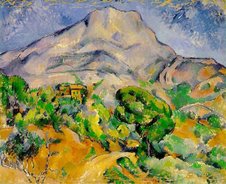


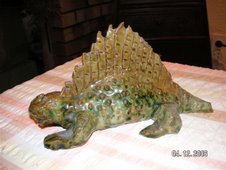


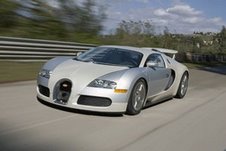
No comments:
Post a Comment